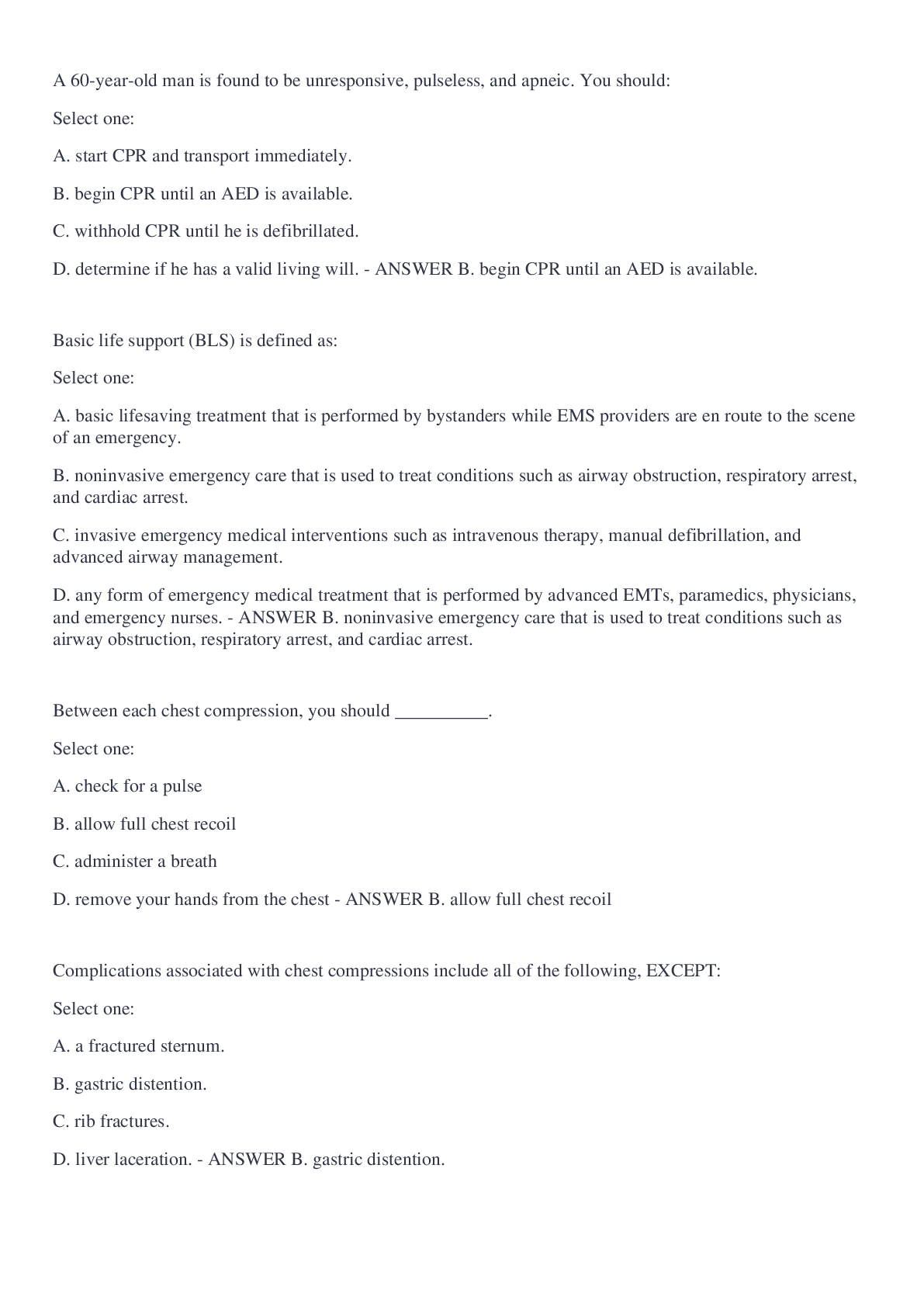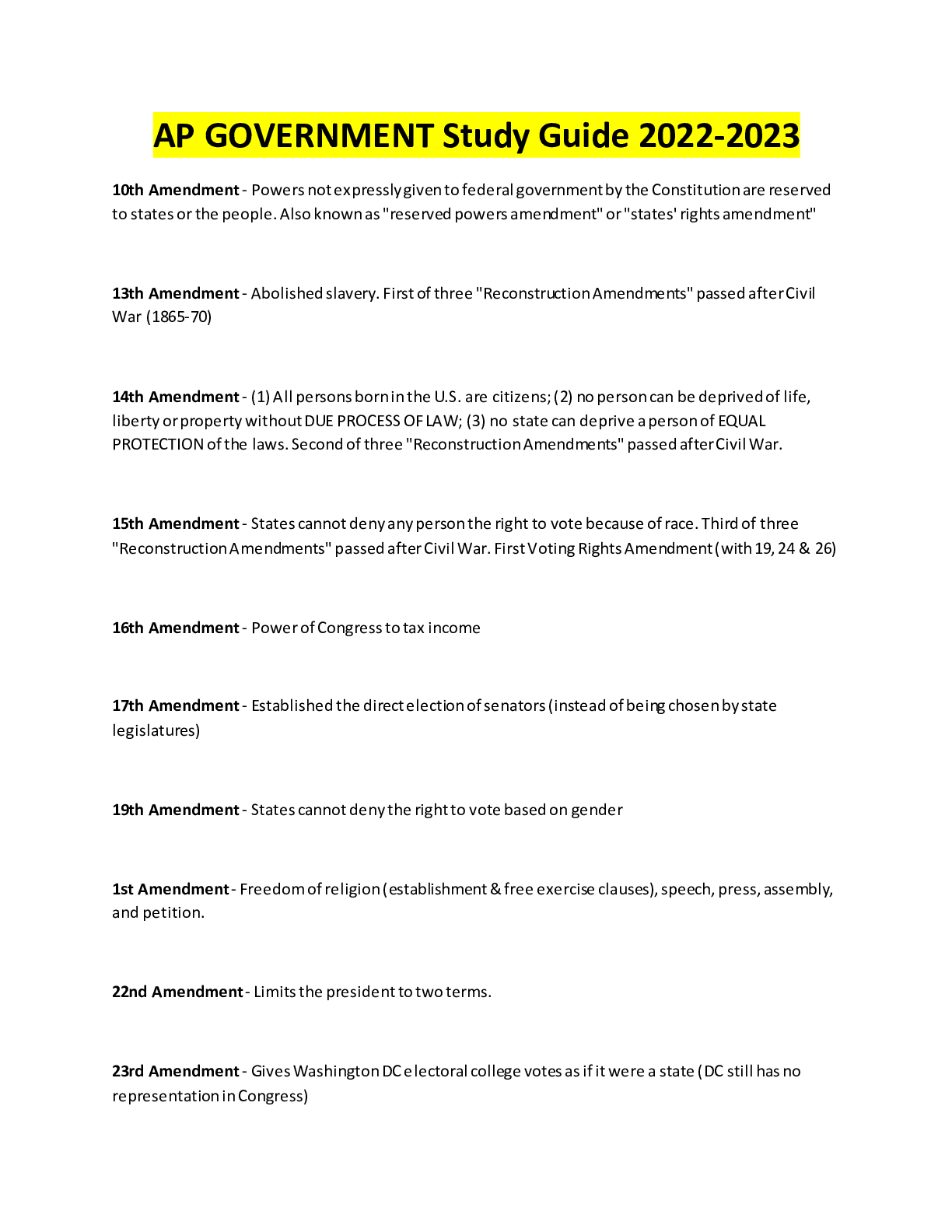Education > STUDY GUIDE > WGU C181: Survey of United States Constitution and Government STUDY GUIDE (All)
WGU C181: Survey of United States Constitution and Government STUDY GUIDE
Document Content and Description Below
Democratic socialism Answer- A socialist form of government that guarantees civil liberties such as freedom of speech and religion. Citizens determine the extent of government activity through free ... elections and competitive political parties. Government Answer- The legitimate use of force within specified geographical boundaries to control human behavior. Communism Answer- A political system in which, in theory, ownership of all land and productive facilities is in the hands of the people (in effect, to the government), and all goods are equally shared. The production and distribution of goods are controlled by an authoritarian government. Laissez faire Answer- An economic doctrine that opposes any form of government intervention in business. Social equality Answer- Equality in wealth, education, and status. Police power Answer- The authority of a government to maintain order and safeguard citizens' health, morals, safety, and welfare. Rights Answer- The benefits of government to which every citizen is entitled. Public goods Answer- Benefits and services, such as parks and sanitation, which benefit all citizens but are not likely to be produced voluntarily by individuals. Socialism Answer- A form of rule in which the central government plays a strong role in regulating existing private industry and directing the economy, although it does allow some private ownership of productive capacity. Freedom Answer- The power or right to act, speak, or think as one wants without hindrance or restraint. Capitalism Answer- The system of government that favors free enterprise (privately owned businesses operating without government regulation). Globalization Answer- The process of interaction and integration among the people, companies, and governments of different nations, a process driven by international trade and investment and aided by information technology. Conservatives Answer- Those who are willing to use government to promote order but not equality. Order Answer- The rule of law to preserve life and protect property. Communitarians Answer- Those who are willing to use government to promote both order and equality. Democracy Answer- A system of government in which, in theory, the people rule, either directly or indirectly. Responsiveness Answer- A decision-making principle, necessitated by representative government, which implies that elected representatives should do what the majority of people want. Substantive democratic theory Answer- The view that democracy is embodied in the substance of government policies rather than in the policymaking procedure. Democratization Answer- A process of transition as a country attempts to move from an authoritarian form of government to a democratic one. Universal participation Answer- The concept that everyone in a democracy should participate in governmental decision making. Interest group Answer- An organized group of individuals that seeks to influence public policy; also called a lobby. Minority rights Answer- The benefits of government that cannot be denied to any citizen by majority decisions. Autocracy Answer- A system of government in which the power to govern is concentrated in the hands of one individual. Procedural democratic theory Answer- A view of democracy as being embodied in a decision-making process that involves universal participation, political equality, majority rule, and responsiveness. Participatory democracy Answer- A system of government where rank-and-file citizens rule themselves rather than electing representatives to govern on their behalf. E-government Answer- Online communication channels that enable citizens to easily obtain information from government and facilitate the expression of opinions to government officials. Oligarchy Answer- A system of government in which power is concentrated in the hands of a few people. Executive branch Answer- The law-enforcing branch of government Judicial branch Answer- The law-interpreting branch of government. Judicial review Answer- The power to declare congressional (and presidential) acts invalid because they violate the Constitution. Electoral college Answer- A body of electors chosen by voters to cast ballots for president and vice president. Confederation Answer- A loose association of independent states that agree to cooperate on specified matters. Enumerated powers Answer- The powers explicitly granted to Congress by the Constitution. Articles of Confederation Answer- The compact among the thirteen original states that established the first government of the United States. Bill of Rights Answer- The first ten amendments to the Constitution. They prevent the national government from tampering with fundamental rights and civil liberties, and emphasize the limited character of national power. Supremacy clause Answer- The clause in Article VI of the Constitution that asserts that national laws take precedence over state and local laws when they conflict. Federalism Answer- The division of power between a central government and regional governments. Categorical grants Answer- Grants-in-aid targeted for a specific purpose by either formula or project. Home rule Answer- The right to enact and enforce legislation locally. Redistricting Answer- The process of redrawing political boundaries to reflect changes in population. Sovereignty Answer- The quality of being supreme in power or authority. Block grants Answer- Grants-in-aid awarded for general purposes, allowing the recipient great discretion in spending the grant money. Restraint Answer- A requirement laid down by an act of Congress, prohibiting a state or local government from exercising a certain power. Project grants Answer- Categorical grants awarded on the basis of competitive applications submitted by prospective recipients to perform a specific task or function. Direct action Answer- Unconventional participation that involves assembling crowds to confront businesses and local governments to demand a hearing. Direct primary Answer- A preliminary election, run by the state government, in which the voters choose each party's candidates for the general election. Recall Answer- The process for removing an elected official from office. Referendum Answer- An election on a policy issue. Terrorism Answer- Premeditated, politically motivated violence perpetrated against noncombatant targets by subnational groups or clandestine agents. Progressivism Answer- A philosophy of political reform based on the goodness and wisdom of the individual citizen as opposed to special interests and political institutions. Initiative Answer- A procedure by which voters can propose an issue to be decided by the legislature or by the people in a referendum. It requires gathering a specified number of signatures and submitting a petition to a designated agency. Unitary executive Answer- A belief that the president's inherent powers allow him to overrule congressional grants of independent authority to agencies. Executive Office of the President Answer- The president's executive aides and their staffs; the extended White House executive establishment. Inherent powers Answer- Authority claimed by the president that is not clearly specified in the Constitution. Typically, these powers are inferred from the Constitution. Divided government Answer- The situation in which one party controls the White House and the other controls at least one house of Congress. Veto Answer- The president's disapproval of a bill that has been passed by both houses of Congress. Congress can override a veto with a two-thirds vote in each house. Electoral mandate Answer- An endorsement by voters. Presidents sometimes argue they have been given a mandate to carry out policy proposals. Cabinet Answer- A group of presidential advisers; the heads of the executive departments and other key officials. Legislative liaison staff Answer- The people who act as the communications link between the White House and Congress, advising the president or cabinet secretaries on the status of pending legislation. Delegation of powers Answer- The process by which Congress gives the executive branch the additional authority needed to address new problems. Solicitor general Answer- The third highest official of the U.S. Department of Justice, and the one who represents the national government before the Supreme Court. Federal question Answer- An issue covered by the U.S. Constitution, national laws, or U.S. treaties. Class action Answer- A procedure by which similarly situated litigants may be heard in a single lawsuit. Amicus curiae brief Answer- A brief filed (with the permission of the court) by an individual or group that is not a party to a legal action but has an interest in it. Common, or judge-made, law Answer- Legal precedents derived from previous judicial decisions. U.S. district courts Answer- Courts within the lowest tier of the three-tiered federal court system; courts where litigation begins. Original jurisdiction Answer- The authority of a court to hear a case before any other court does. Criminal cases Answer- Court cases involving a crime, or violation of public order. Senatorial courtesy Answer- A norm under which a nomination must be acceptable to the home state senator from the president's party. Civil cases Answer- Court cases that involve a private dispute arising from such matters as accidents, contractual obligations, and divorce. Docket Answer- A court's agenda. Rule of four Answer- An unwritten rule that requires at least four justices to agree that a case warrants consideration before it is reviewed by the U.S. Supreme Court. Concurrence Answer- The agreement of a judge with the Supreme Court's majority decision, for a reason other than the majority reason. U.S. Court of Appeals Answer- Courts within the second tier of the three-tiered federal court system, to which decisions of the district courts and federal agencies may be appealed for review. Appellate jurisdiction Answer- The authority of a court to hear cases that have been tried, decided, or reexamined in other courts. Dissent Answer- The disagreement of a judge with a majority decision. Precedent Answer- A judicial ruling that serves as the basis for the ruling in a subsequent case. Judgment Answer- The judicial decision in a court case. Miranda warnings Answer- Statements concerning rights that police are required to make to a person before he or she is subjected to in-custody questioning. Strict scrutiny Answer- A standard used by the Supreme Court in deciding whether a law or policy is to be adjudged constitutional. To pass strict scrutiny, the law or policy must be justified by a "compelling governmental interest," must be narrowly tailored, and must be the least restrictive means for achieving that interest. Free-expression clauses Answer- The press and speech clauses of the First Amendment. Public figures Answer- People who assume roles of prominence in society or thrust themselves to the forefront of public controversy. Ex post facto laws Answer- Laws that declare an action to be criminal after it has been performed. Good faith exception Answer- An exception to the Supreme Court exclusionary rule, holding that evidence seized on the basis of a mistakenly issued search warrant can be introduced at trial if the mistake was made in good faith, that is, if all the parties involved had reason at the time to believe that the warrant was proper. Free-exercise clause Answer- The second clause in the First Amendment, which prevents the government from interfering with the exercise of religion. Clear and present danger test Answer- A means by which the Supreme Court has distinguished between speech as the advocacy of ideas, which is protected by the First Amendment, and speech as incitement, which is not protected. Prior restraint Answer- Censorship before publication. Fighting words Answer- Speech that is not protected by the First Amendment because it inflicts injury or tends to incite an immediate disturbance of the peace. Establishment clause Answer- The first clause in the First Amendment, which forbids government establishment of religion. Exclusionary rule Answer- The judicial rule that states that evidence obtained in an illegal search and seizure cannot be used in trial. Black codes Answer- Legislation enacted by former slave states to restrict the freedom of blacks. Protectionism Answer- The notion that women must be protected from life's cruelties; until the 1970s, the basis for laws affecting women's civil rights. Equality of opportunity Answer- The idea that each person is guaranteed the same chance to succeed in life. Sexism Answer- Invidious sex discrimination. Separate-but-equal doctrine Answer- The concept that providing separate but equivalent facilities for blacks and whites satisfies the equal protection clause of the Fourteenth Amendment. Invidious discrimination Answer- Discrimination against persons or groups that works to their harm and is based on animosity. Affirmative action Answer- Any of a wide range of programs, from special recruitment efforts to numerical quotas, aimed at expanding opportunities for women and minority groups. Equal rights amendment (ERA) Answer- A failed constitutional amendment introduced by the National Women's Party in 1923, declaring that "equality of rights under the law shall not be denied or abridged by the United States or any State on account of sex." Racism Answer- A belief that human races have distinct characteristics such that one's own race is superior to, and has a right to rule, others. Desegregation Answer- The ending of authorized segregation, or separation by race. boycott Answer- A refusal to do business with a firm, individual, or nation as an expression of disapproval or as a means of coercion. [Show More]
Last updated: 1 year ago
Preview 1 out of 23 pages
Instant download
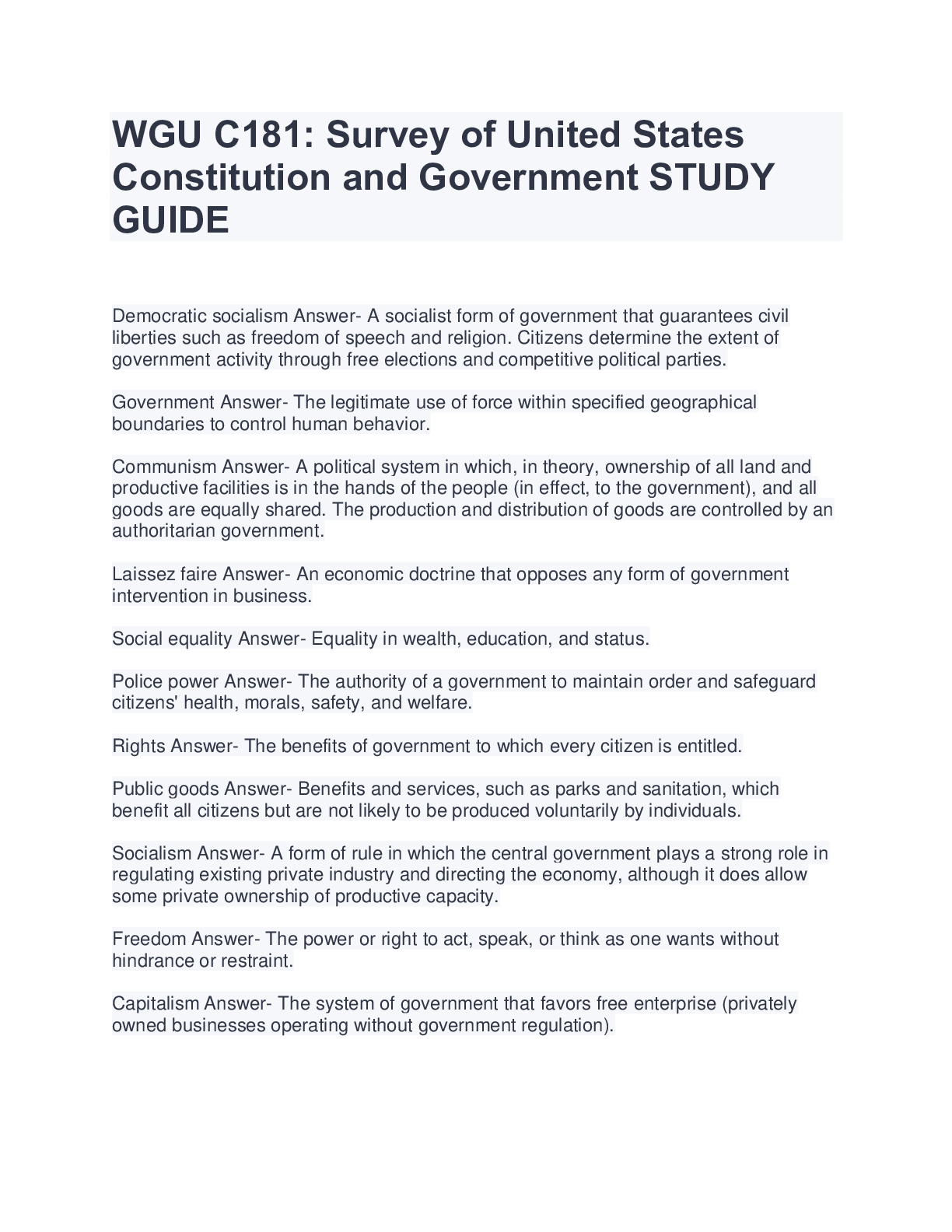
Buy this document to get the full access instantly
Instant Download Access after purchase
Add to cartInstant download
Reviews( 0 )
Document information
Connected school, study & course
About the document
Uploaded On
Aug 25, 2022
Number of pages
23
Written in
Additional information
This document has been written for:
Uploaded
Aug 25, 2022
Downloads
0
Views
35

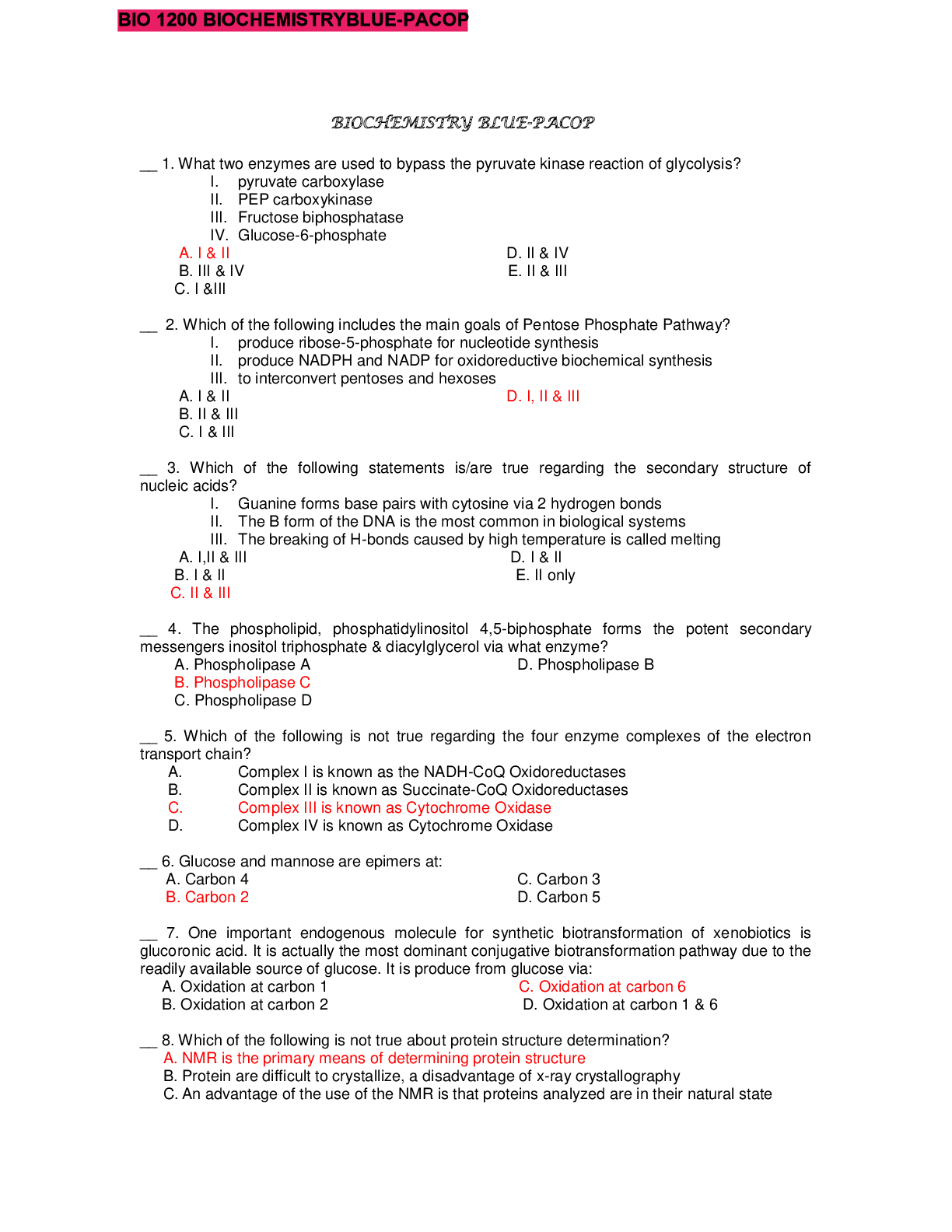
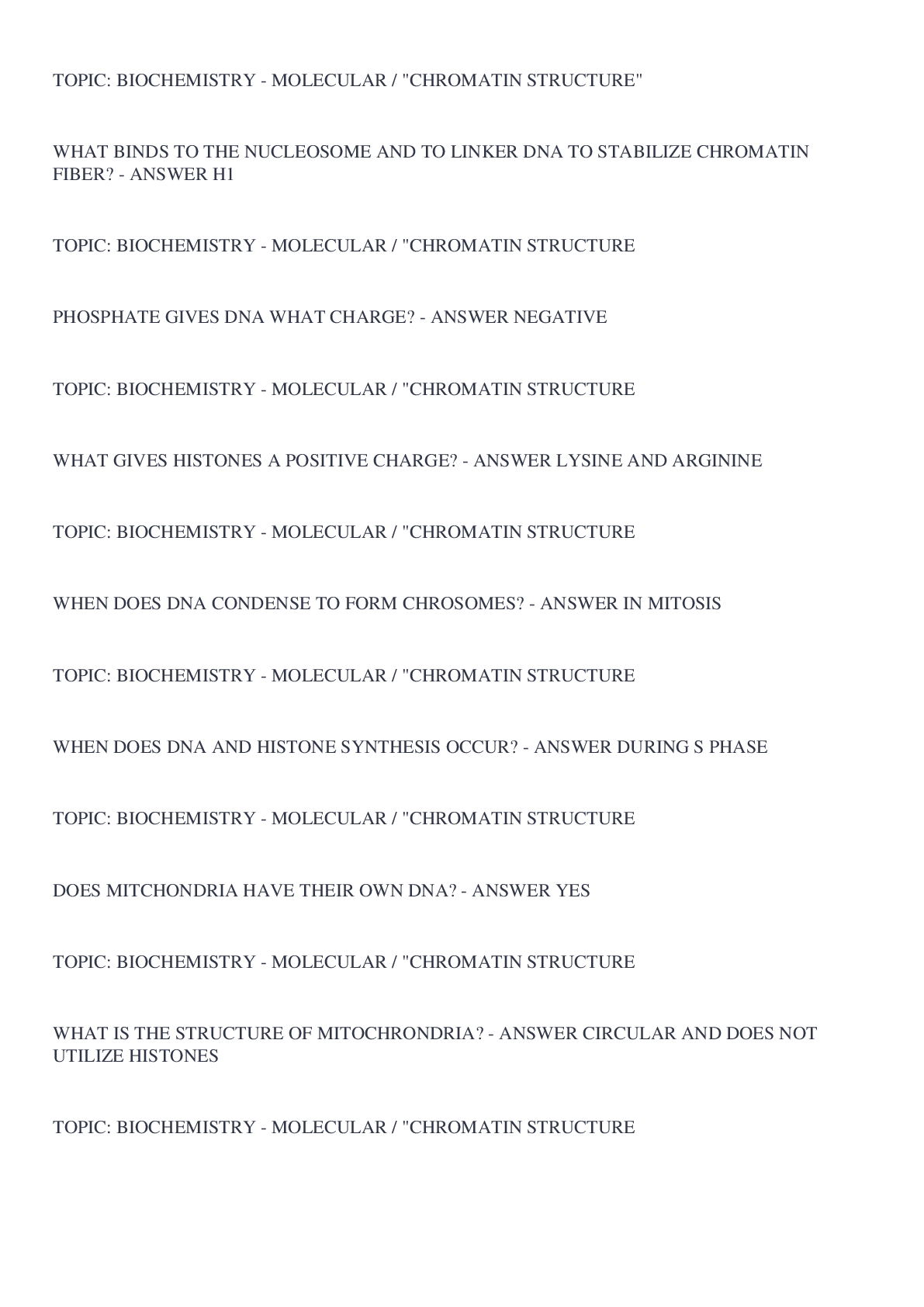
.png)
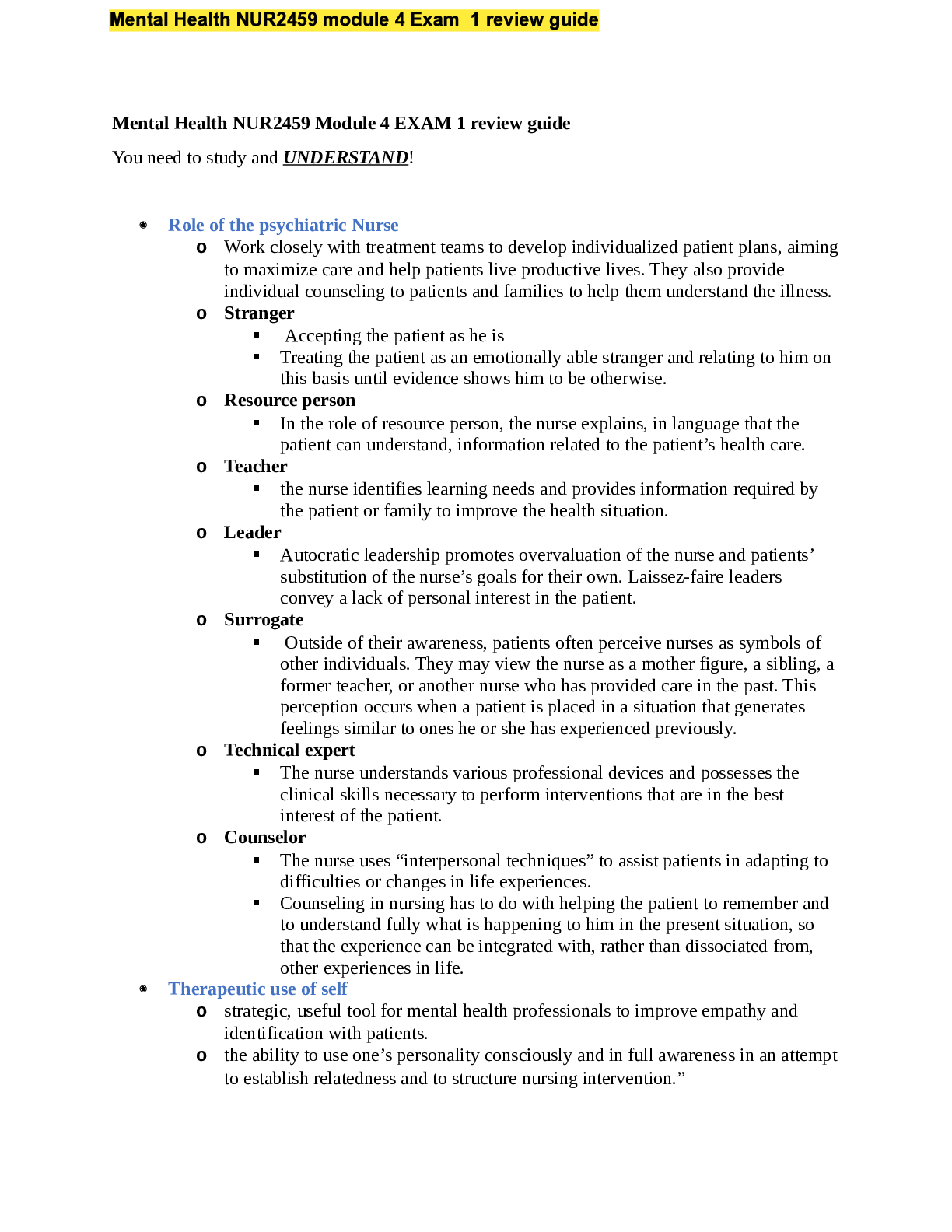
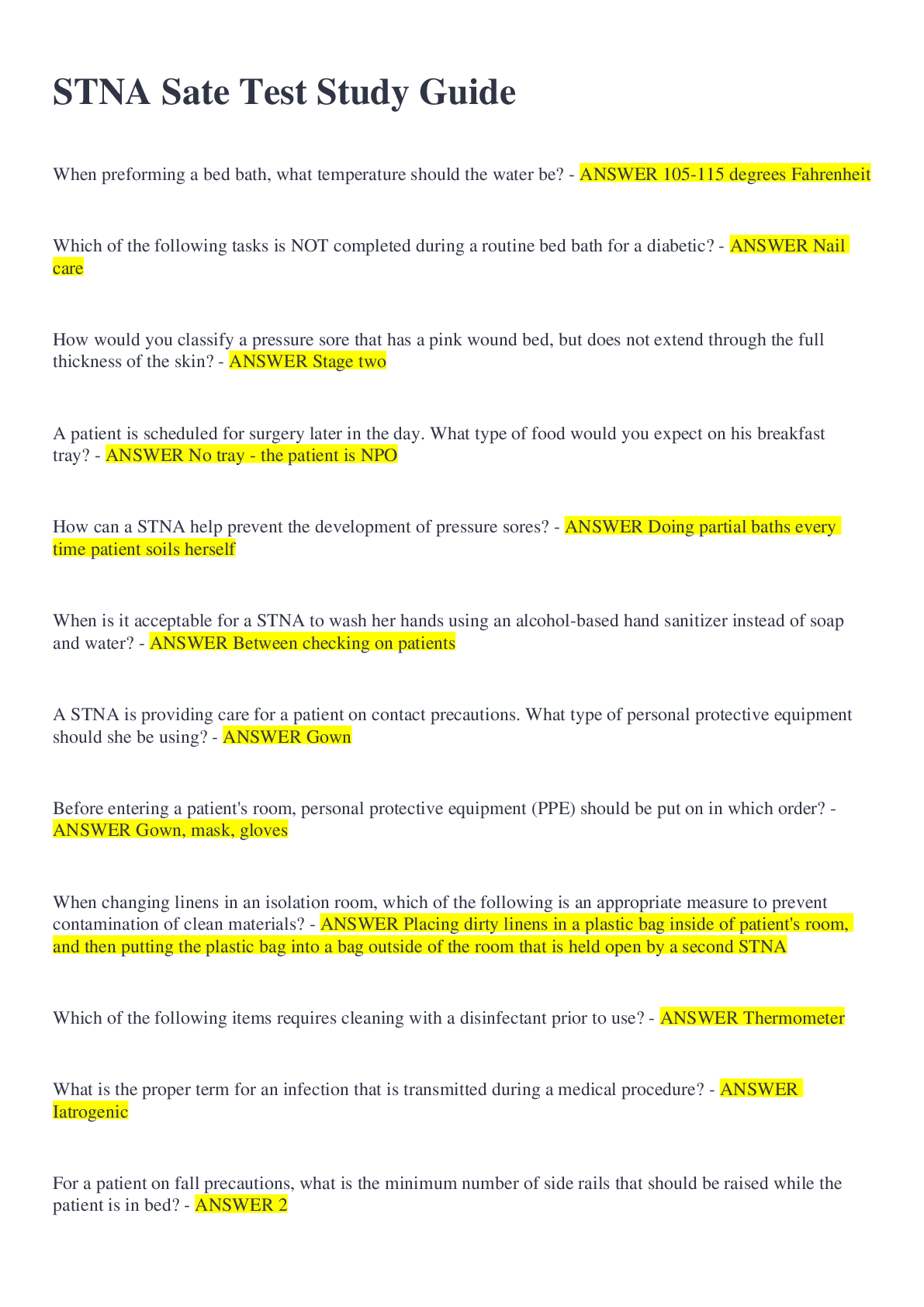
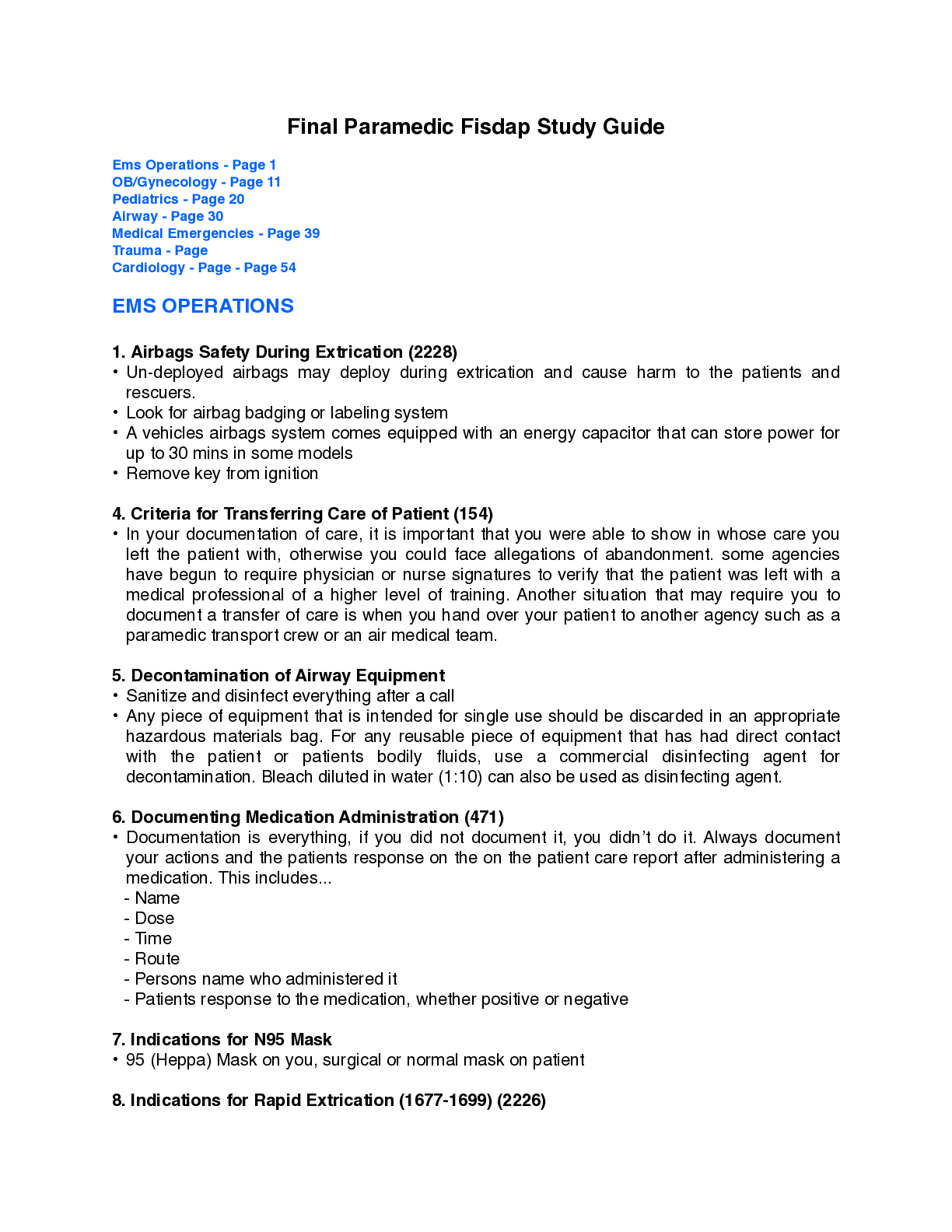
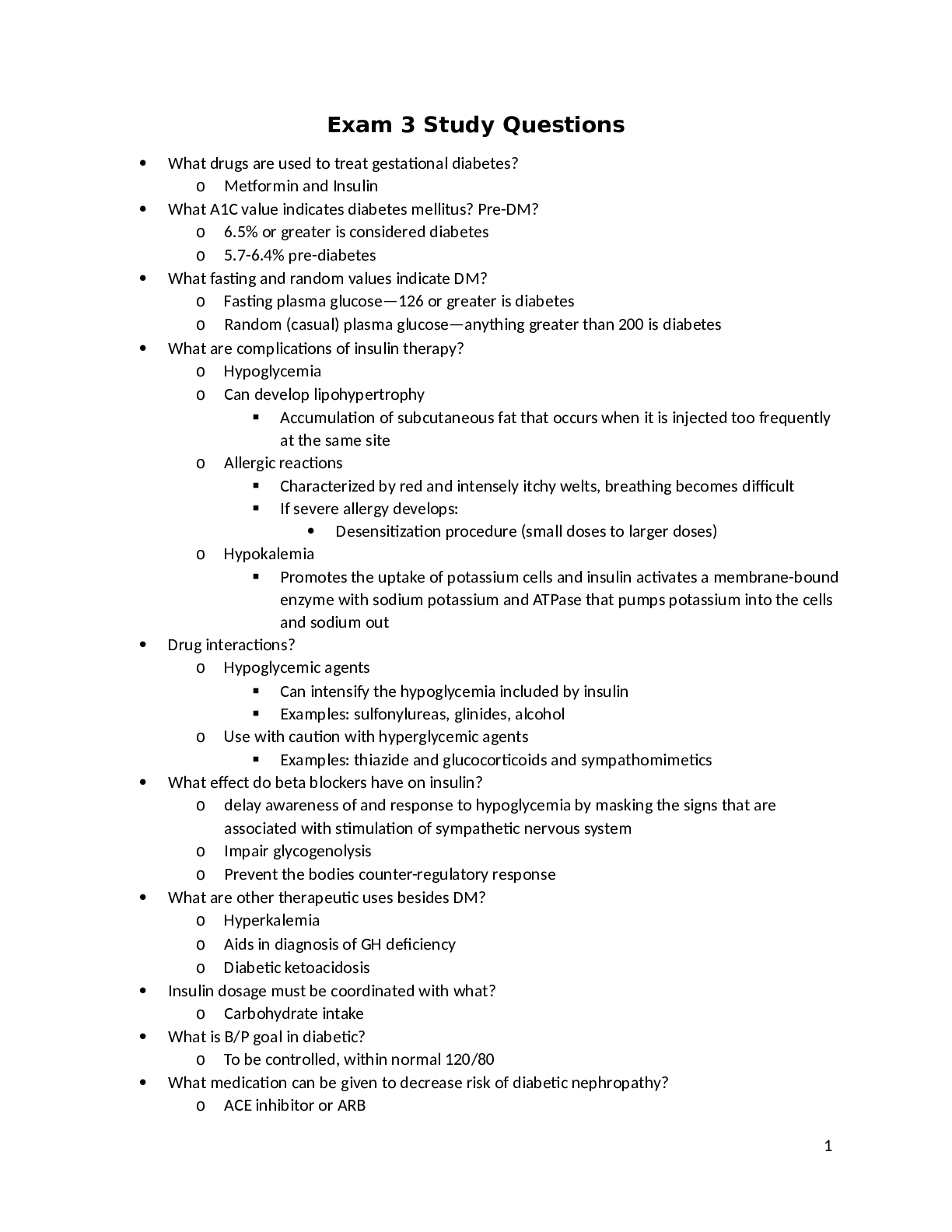
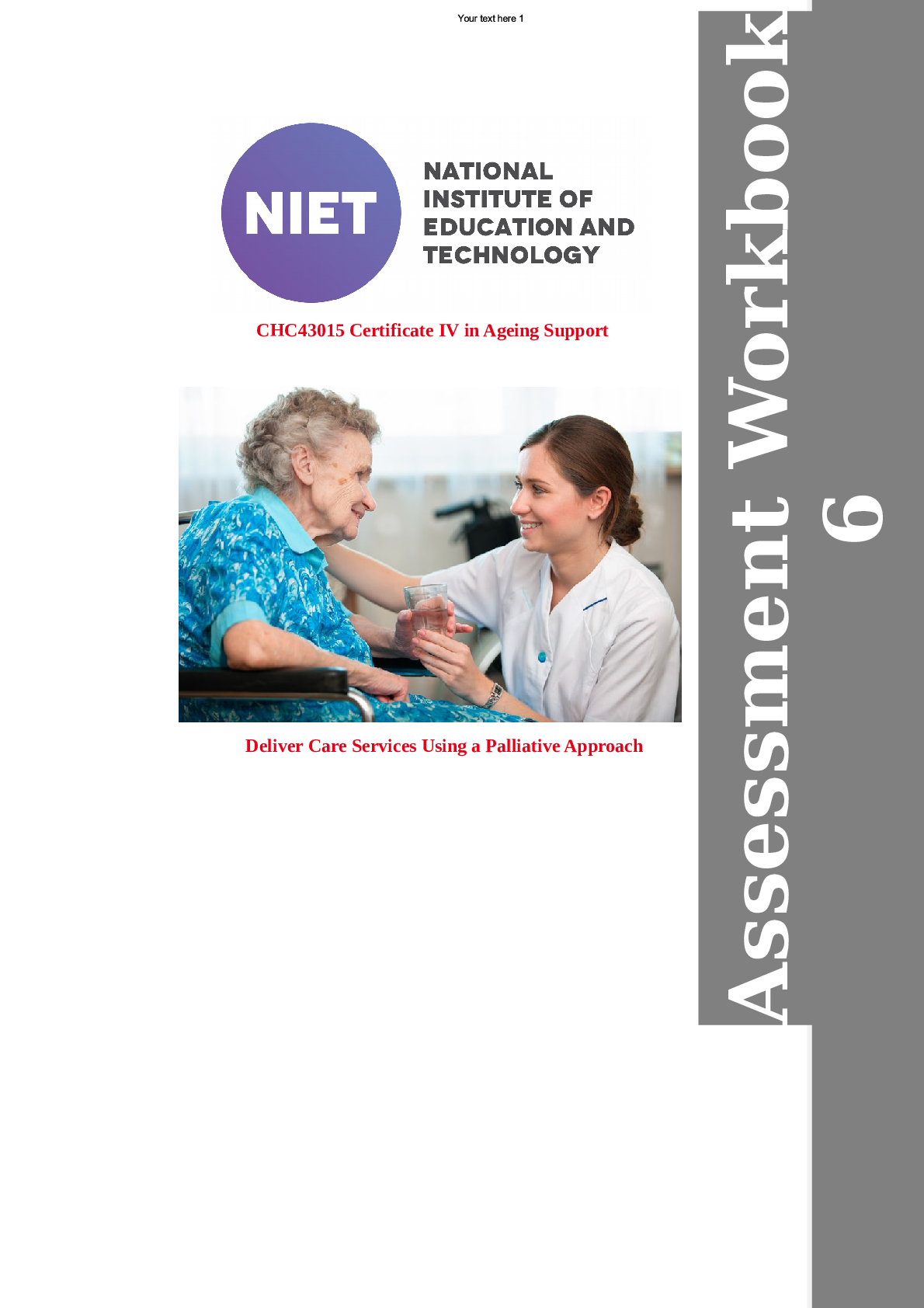
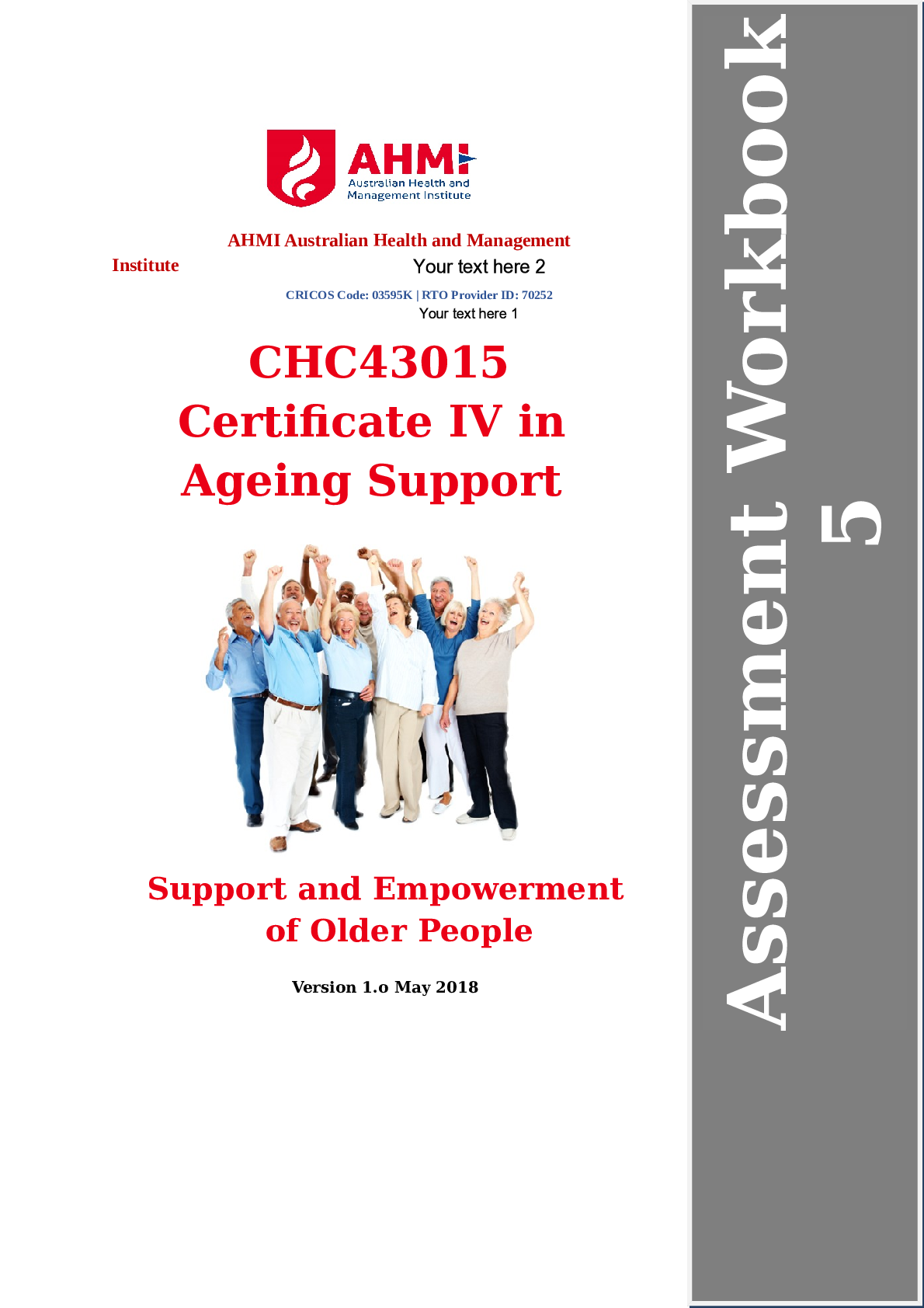
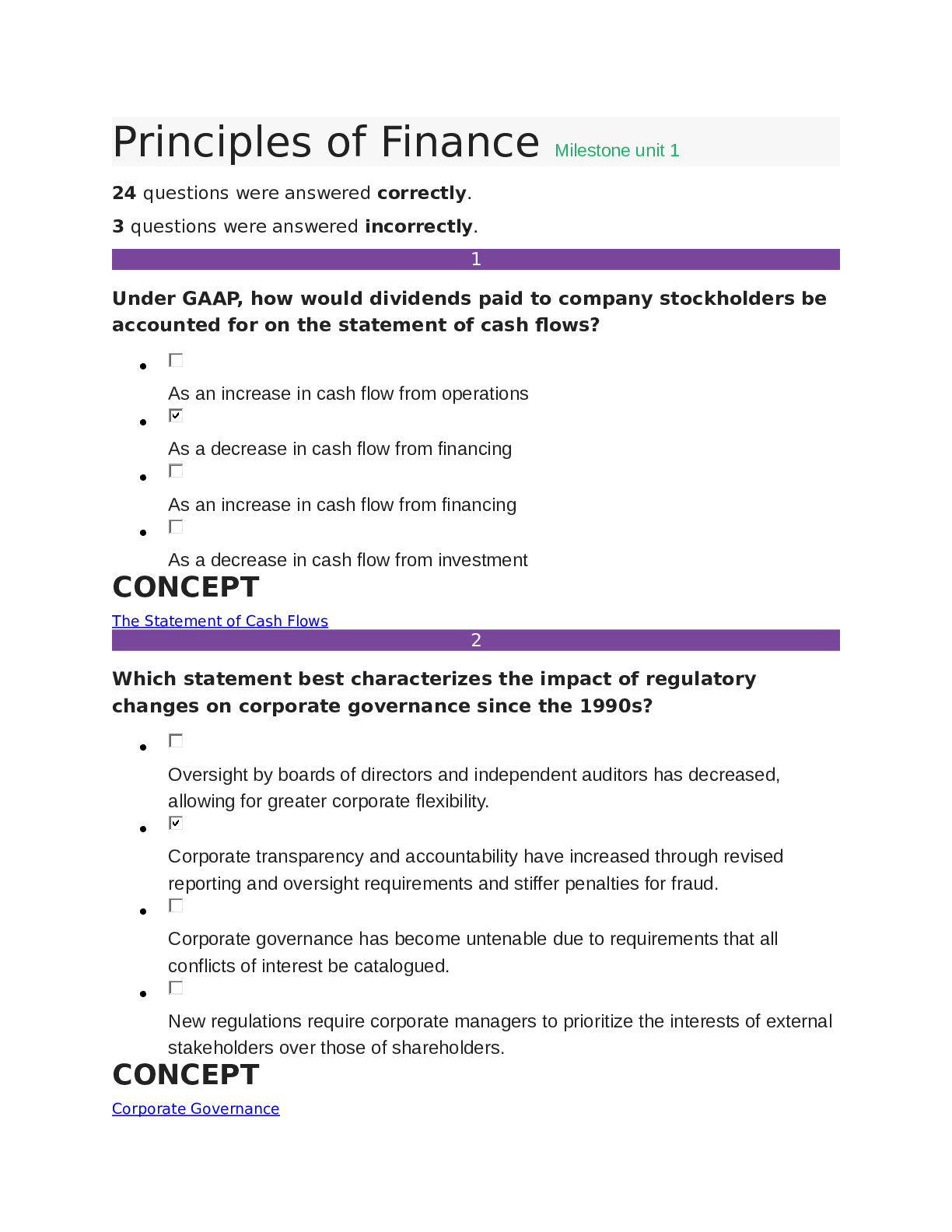
.png)
